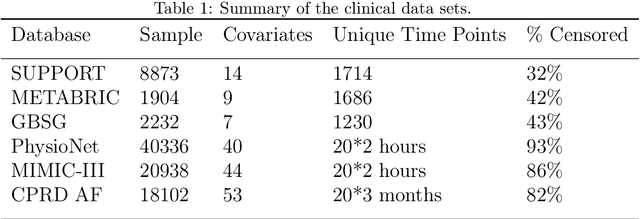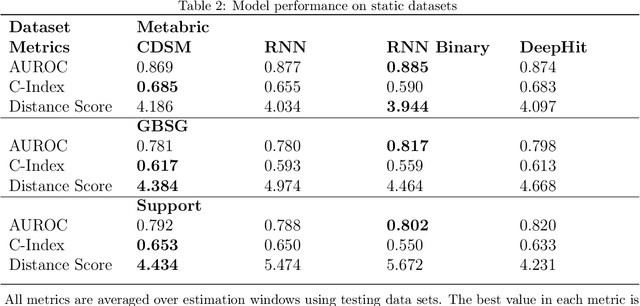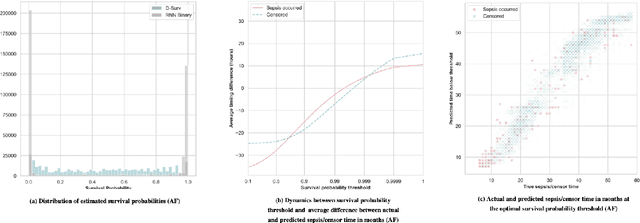Dynamic prediction of time to event with survival curves
Paper and Code
Jan 26, 2021



With the ever-growing complexity of primary health care system, proactive patient failure management is an effective way to enhancing the availability of health care resource. One key enabler is the dynamic prediction of time-to-event outcomes. Conventional explanatory statistical approach lacks the capability of making precise individual level prediction, while the data adaptive binary predictors does not provide nominal survival curves for biologically plausible survival analysis. The purpose of this article is to elucidate that the knowledge of explanatory survival analysis can significantly enhance the current black-box data adaptive prediction models. We apply our recently developed counterfactual dynamic survival model (CDSM) to static and longitudinal observational data and testify that the inflection point of its estimated individual survival curves provides reliable prediction of the patient failure time.
 Add to Chrome
Add to Chrome Add to Firefox
Add to Firefox Add to Edge
Add to Edge